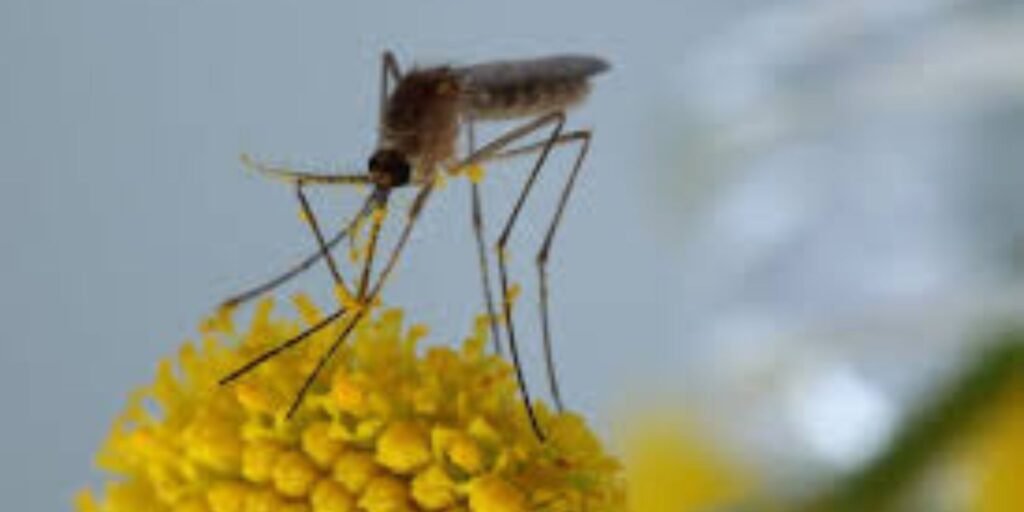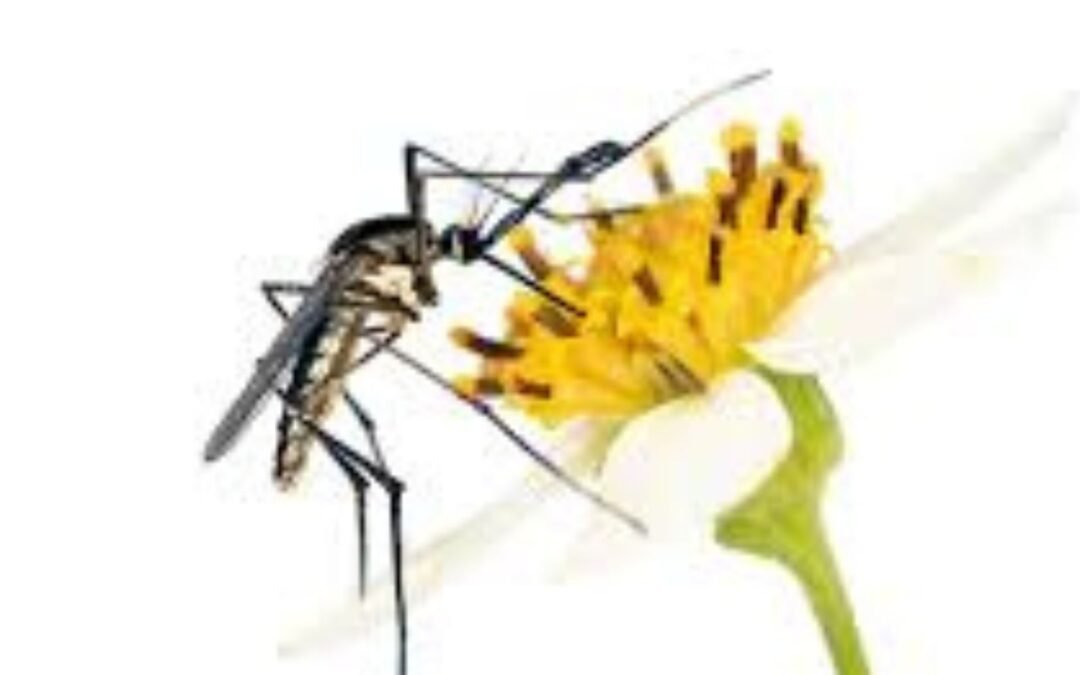Introduction
Mosquitoes are often viewed as little more than pests, capable of causing great annoyance and spreading dangerous diseases such as malaria and dengue fever. However, there’s more to these tiny insects than meets the swatter. You might be surprised to learn that mosquitoes have a hidden role in the ecosystem that benefits the planet in a significant way. Yes, mosquitoes are pollinators. But how do they contribute to pollination, and should this change how we perceive them? While they are not the most efficient pollinators, mosquitoes play a role in fertilizing certain plants, especially those with long tubular flowers. Their ability to transfer pollen, although minor, highlights the intricate balance they have within the ecosystem.
This blog explores mosquitoes’ role as pollinators, exploring their often-overlooked contributions to the environment, the extent of their role compared to other pollinators, and what this means for our ecosystems. While mosquitoes are better known for their role in spreading diseases, they also help support biodiversity by pollinating certain flowers. Understanding their ecological importance can shift how we view these insects and their place in the natural world.
What Does It Mean to Be a Pollinator?

Before exploring mosquitoes as pollinators, it’s vital to understand what pollination involves. Pollination transfers pollen from the male parts of a flower (anthers) to the female parts (stigma). This enables fertilization, which leads to the production of seeds and fruit, sustaining plant life.
Pollinators assist with this process by moving pollen as they forage for nectar. Common pollinators include bees, butterflies, birds, bats, and certain species of beetles. Many fruits, vegetables, and flowers would fail to grow without pollinators.
But where do mosquitoes fit into this picture?
Do Mosquitoes Pollinate Flowers?
You may find this surprising, but not all mosquitoes feed on blood. Only female mosquitoes bite and consume blood—and they do so primarily to get the nutrients necessary for egg production. The original and primary diet of both male and female mosquitoes is nectar.
While drinking nectar, mosquitoes unintentionally pick up pollen on their legs, wings, or other body parts and transfer it from flower to flower, contributing to pollination. While their role might not be as celebrated as bees or hummingbirds, mosquitoes still play a part in pollination.
Plants That Mosquitoes Pollinate
Mosquitoes are not general pollinators; they are selective and favour specific plants. They are particularly attracted to small, inconspicuous flowers abundant in nectar. Some plants even rely exclusively on mosquitoes for pollination, especially in tropical or Arctic regions.
One well-known example is the cacao plant, which requires insect pollinators, including mosquitoes, for its flowers to produce fruit. This means that mosquitoes indirectly contribute to chocolate production! Another notable example is certain species of orchids, which are highly dependent on mosquitoes for cross-pollination.
Mosquitoes vs. Bees as Pollinators
Although mosquitoes are pollinators, they are not as efficient as bees. Bees are highly adapted for pollination, with their hairy bodies, specialized pollen baskets, and ability to visit thousands of flowers daily. Conversely, mosquitoes have no such adaptations and are more opportunistic in their pollination efforts.
This doesn’t mean, however, that mosquitoes are irrelevant. They fill a niche within ecosystems, particularly in areas with scarce other pollinators. Though not the pollination superstars that bees are, mosquitoes contribute quietly.
Why Do Mosquitoes Pollinate?
Interestingly, mosquitoes don’t actively seek to pollinate flowers. Pollination is an accidental byproduct of their primary goal—feeding on nectar to gain energy. Most plants don’t require mosquitoes to survive, but these insects are essential contributors to reproduction and biodiversity for the few species that do.
Mosquitoes’ role as pollinators is especially important in environments like wetlands and tropical forests, where unique plants depend on specialized pollinators for survival.
The Ecological Importance of Mosquitoes
While mosquitoes’ role as pollinators often goes unnoticed, their ecological importance extends beyond pollination.
- Food Chain Contribution
Mosquito larvae are a critical food source for fish, amphibians, and other aquatic organisms. Adult mosquitoes, on the other hand, provide sustenance for birds, bats, and dragonflies, thereby supporting larger ecosystems.
- Biodiversity
By pollinating specific plants, mosquitoes contribute to the maintenance of biodiversity. The plants they pollinate may have cultural, ecological, or even economic significance, such as the cacao plant.
Understanding mosquitoes’ ecological roles helps paint a more rounded picture of their place in the natural world.
Challenges and Misconceptions About Mosquito Pollination
Mosquitoes’ reputation as disease carriers often overshadows their contributions as pollinators. Understandably, this makes it difficult for people to view them positively. For most of us, mosquitoes are, first and foremost, a nuisance, causing itchy bites and occasionally spreading harmful illnesses.
However, it’s important to distinguish between mosquitoes’ role as vectors of disease and their lesser-known ecological functions. While controlling mosquito populations is necessary for public health, it’s worth considering the environmental impact of eradication efforts, as losing any species can disrupt ecosystems.
Should We Protect Mosquitoes as Pollinators?
Does the fact that mosquitoes are pollinators mean we should protect them? The answer lies in striking a balance.
Efforts to manage mosquitoes for public health reasons, such as controlling malaria outbreaks, are essential, especially in areas heavily affected by mosquito-borne illnesses. That said, overly aggressive eradication measures that threaten ecosystems should be avoided.
Conservation efforts should focus on maintaining biodiversity while finding innovative solutions to mitigate the effects of mosquito-borne diseases. Some researchers are exploring genetic modification technologies to reduce the populations of harmful mosquito species, leaving pollinating and non-disease-carrying species untouched.
Are mosquitoes pollinators :Mosquitoes in the Bigger Picture

While mosquitoes are often seen as pesky creatures due to their tendency to bite and spread diseases, they play a more complex role in ecosystems than many realize. Though not as efficient as other pollinators like bees or butterflies, mosquitoes do contribute to pollination. Both male and female mosquitoes feed on nectar from plants, and in the process, they help pollinate certain flowers, especially those with long, tubular shapes that are more suited to their slender bodies. This small contribution can aid in the reproduction of various plants and flowers, supporting biodiversity.
In addition to their role in pollination, mosquitoes are an important part of the food chain. Mosquito larvae provide food for a wide range of aquatic species, including fish, amphibians, and other invertebrates. These larvae thrive in stagnant water, which helps keep certain ecosystems balanced by supporting the populations of these aquatic creatures. Adult mosquitoes, in turn, are a food source for birds, bats, and other insectivorous animals, forming an integral link in the diet of many predators.
Despite their often negative reputation, mosquitoes contribute to maintaining biodiversity. By serving as a food source for numerous species and helping pollinate certain plants, mosquitoes indirectly support the survival of many other organisms. Furthermore, the role they play in the food web can help keep various populations in check, maintaining ecological balance.

